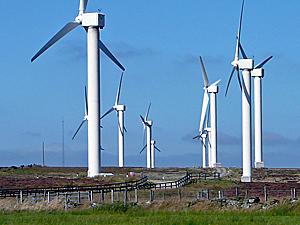Is Climate Change Really a Procurement Concern?
 This week, as the results of the 2010 CDP Supply Chain report are launched, Frances Way – head of the supply chain program at the Carbon Disclosure Project (CDP) – will provide evidence of the progress being made in the management of companies’ supply chain emissions.
This week, as the results of the 2010 CDP Supply Chain report are launched, Frances Way – head of the supply chain program at the Carbon Disclosure Project (CDP) – will provide evidence of the progress being made in the management of companies’ supply chain emissions.Today she outlines the business case for procurement departments to introduce climate change into their supplier relationships. Tomorrow will focus on how some leading corporations are transforming the way they manage carbon in the supply chain, and on Wednesday she will take a look at how suppliers are actually performing.
The CDP Supply Chain is a collaboration of global corporations who measure beyond their own carbon footprint to their suppliers carbon emissions, in order to maintain a resilient and sustainable supply chain. The report produced by A.T. Kearney includes responses from 710 suppliers.
Procurement departments are no strangers to dealing with both risk and cost management. There is the threat of having too much, or too little, of a product, the cost of product recalls, loss of production and sales, or longer term brand and reputation impacts. Ultimately, what procurement managers are looking for, are savings for the business.
It would be wrong to assume that the procurement department has a full agenda and would leave issues such as climate change to their environmental or CSR colleagues. In fact, we have found the opposite to be true. Business is increasingly seeing climate change in terms of opportunity and return on investment and operational departments such as procurement are now having climate change conversations with their business partners.
Our member organizations cite various drivers for measuring their supply chain emissions, including:
1. Customers demand it. According to PepsiCo, "Climate change could result in consumer preferences and retail customer demands – we must anticipate and react to such changes to maintain the demand for our products." At CDP we are seeing forward thinking companies use their knowledge of supply chain emissions to support the development of low-carbon products.
2. Managing supply chain risk. Regulations aimed at reducing business emissions will increasingly put pressure on both suppliers and their customers. An increase in extreme weather events, changes in temperature and rainfall patterns could lead to disruption of supply. Asking suppliers for information on the risks of climate change is the first step to managing those risks.
As Gary Aldridge, group manufacturing director at Imperial Tobacco Group told us, "I see the CDP Supply Chain Project as a pragmatic way to ensure business continuity and cost control in a challenging business environment, with physical, regulatory and financial impacts of climate change already being felt in our respective businesses."
3. Stakeholders are turning up the pressure. Investor, consumer and customer interest in climate change has pushed companies to integrate carbon management within their business strategy. Dell is now asking its suppliers to set expectations for their own suppliers to manage and publicly disclose emissions.
4. It’s a joint process of improvement. Working collaboratively with suppliers to improve processes to reduce carbon emissions can result in cost savings.
As a result of reporting on climate change, Logica has saved £10 million in its U.K. organization and is now supporting its suppliers to report via us to help make similar energy, carbon and cost savings. Companies are also asking their suppliers to think about the opportunities climate change could present in order to encourage innovation.
Matt Kistler, senior vice president of sustainability at Walmart points out, "We recognize from our own experience, that working to reduce greenhouse gas emissions can drive innovation and enable cost savings."
Our member organizations have taken huge leaps forward in carbon management within their own businesses and are setting expectations for their suppliers to do the same. Tomorrow we will look at how companies like Dell are not waiting for new regulation, but are setting new industry standards with clear requirements for their suppliers to manage their emissions if they are to compete for Dell’s business.
Frances Way is head of the supply chain program at the Carbon Disclosure Project (CDP).
Images CC licensed by Flickr user Tim Green aka atoach.
You can return to the main Market News page, or press the Back button on your browser.

